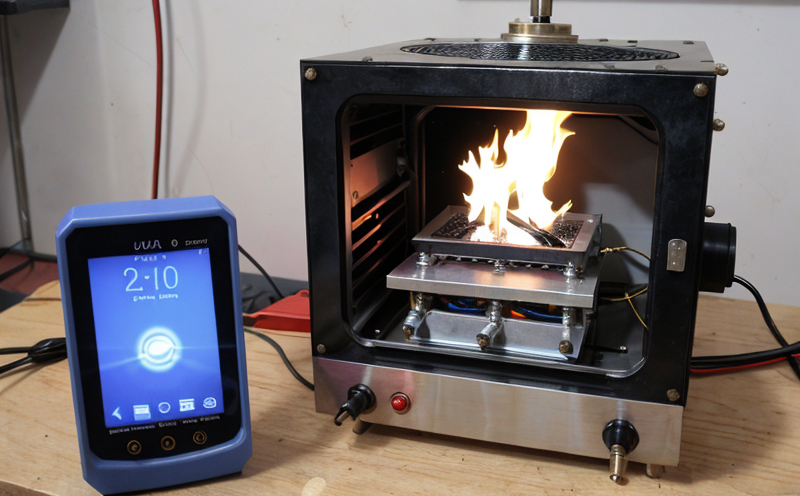Testing the device for thermal expansion and contraction effects
Testing the Device for Thermal Expansion and Contraction Effects Ensuring Your Products Reliability
In todays fast-paced manufacturing world, ensuring that your products can withstand various environmental conditions is crucial to their reliability and performance. One critical aspect of this is testing for thermal expansion and contraction effects. This laboratory service, offered by Eurolab, provides an essential tool for businesses seeking to optimize their product design and prevent potential failures.
Thermal expansion and contraction are inherent properties of materials that expand or contract in response to temperature changes. While these effects can be beneficial in certain applications, they can also lead to catastrophic consequences if not properly managed. For instance, a component that expands too much may cause mechanical failure or disrupt the overall functionality of your product. Conversely, inadequate consideration for thermal contraction can result in reduced performance or even complete system collapse.
Advantages of Testing for Thermal Expansion and Contraction Effects
By incorporating this laboratory service into your product development process, you can enjoy numerous benefits, including
Improved Product Reliability By understanding the thermal expansion and contraction behaviors of your materials, you can design products that are more resistant to temperature fluctuations, ensuring improved reliability and reduced failure rates.
Enhanced Performance A well-designed product takes into account the effects of thermal expansion and contraction. This leads to enhanced performance, as the components operational capacity is optimized for various environmental conditions.
Reduced Costs Preventing product failures saves you money in the long run. By identifying potential issues early on through testing, you can avoid costly repairs or replacements down the line.
Increased Safety Uncontrolled thermal expansion and contraction can lead to accidents or injuries. Our laboratory service ensures that your products are safe for use in various environments, minimizing the risk of unexpected failures.
Compliance with Industry Standards Regulatory bodies often require manufacturers to demonstrate compliance with specific standards related to material properties. Testing for thermal expansion and contraction effects helps you meet these requirements, ensuring a smooth certification process.
Key Benefits of Working with Eurolab
When choosing Eurolab as your testing partner, you can expect
Expertise and Experience Our team has extensive knowledge in materials science and thermal analysis, guaranteeing accurate results that inform your product design decisions.
State-of-the-Art Equipment We utilize cutting-edge equipment to provide precise measurements of thermal expansion and contraction effects, ensuring reliable data for your business needs.
Rapid Turnaround Times We understand the importance of timely results in todays fast-paced manufacturing environment. Our dedicated team ensures prompt delivery of test reports, allowing you to make informed design changes quickly.
Frequently Asked Questions
Q What types of materials can be tested for thermal expansion and contraction effects?
A Eurolab offers testing services for a wide range of materials, including metals, polymers, ceramics, and composites. Our laboratory equipment is capable of accommodating various sample sizes and shapes.
Q How do I prepare my samples for testing?
A Before sending your samples to our laboratory, please ensure they are properly packaged and protected from damage during transit. Additionally, provide us with any relevant documentation, such as material specifications or intended use details.
Q What types of thermal analysis methods does Eurolab employ?
A Our experts utilize various techniques, including differential scanning calorimetry (DSC), thermogravimetric analysis (TGA), and dynamic mechanical analysis (DMA). The chosen method depends on the specific material properties being measured.
Q Can I obtain raw data from the tests, or will it be reported in a standardized format?
A Both options are available. You can request raw data for further analysis or choose to receive test reports in a standardized format that meets your business needs.
Conclusion
In todays competitive manufacturing landscape, prioritizing product reliability is essential. By incorporating Testing the device for thermal expansion and contraction effects into your development process, you can minimize potential failures, enhance performance, reduce costs, increase safety, and ensure compliance with industry standards. With Eurolab as your trusted testing partner, you can rest assured that our expertise, cutting-edge equipment, and prompt turnaround times will support your business objectives.




